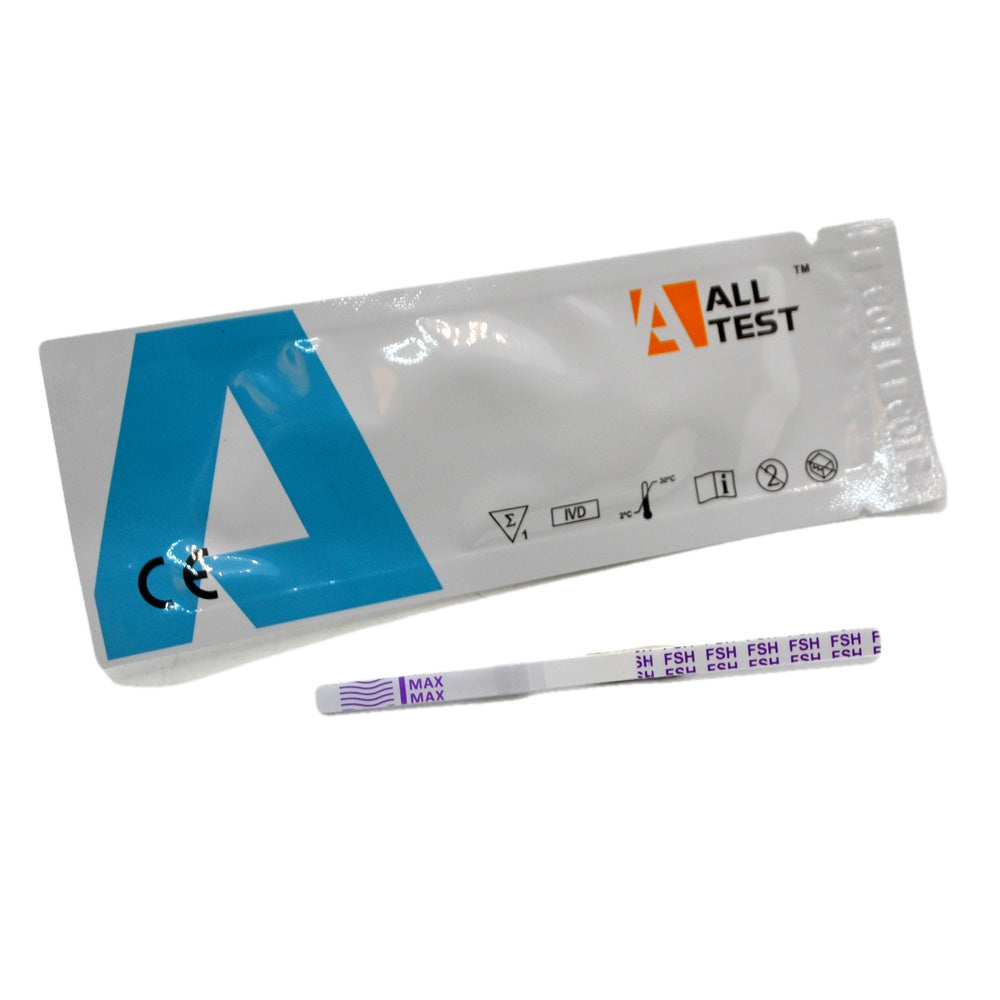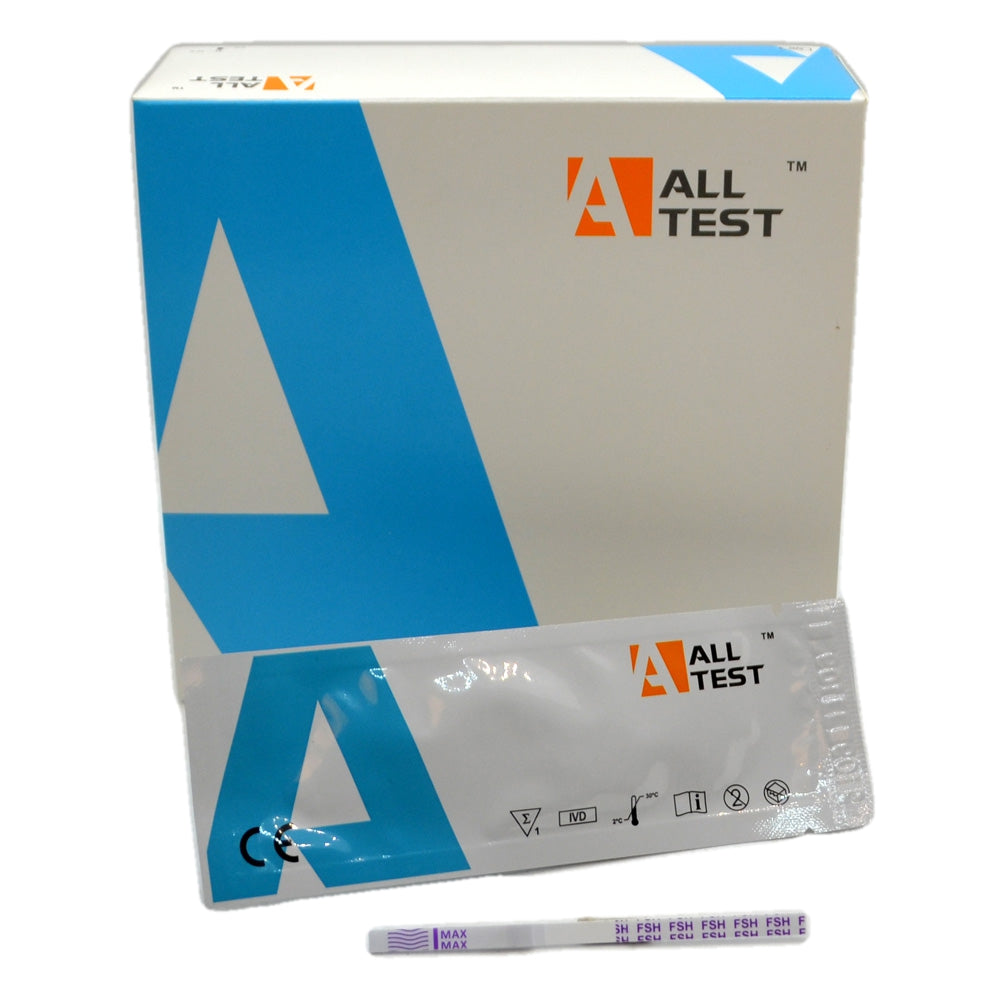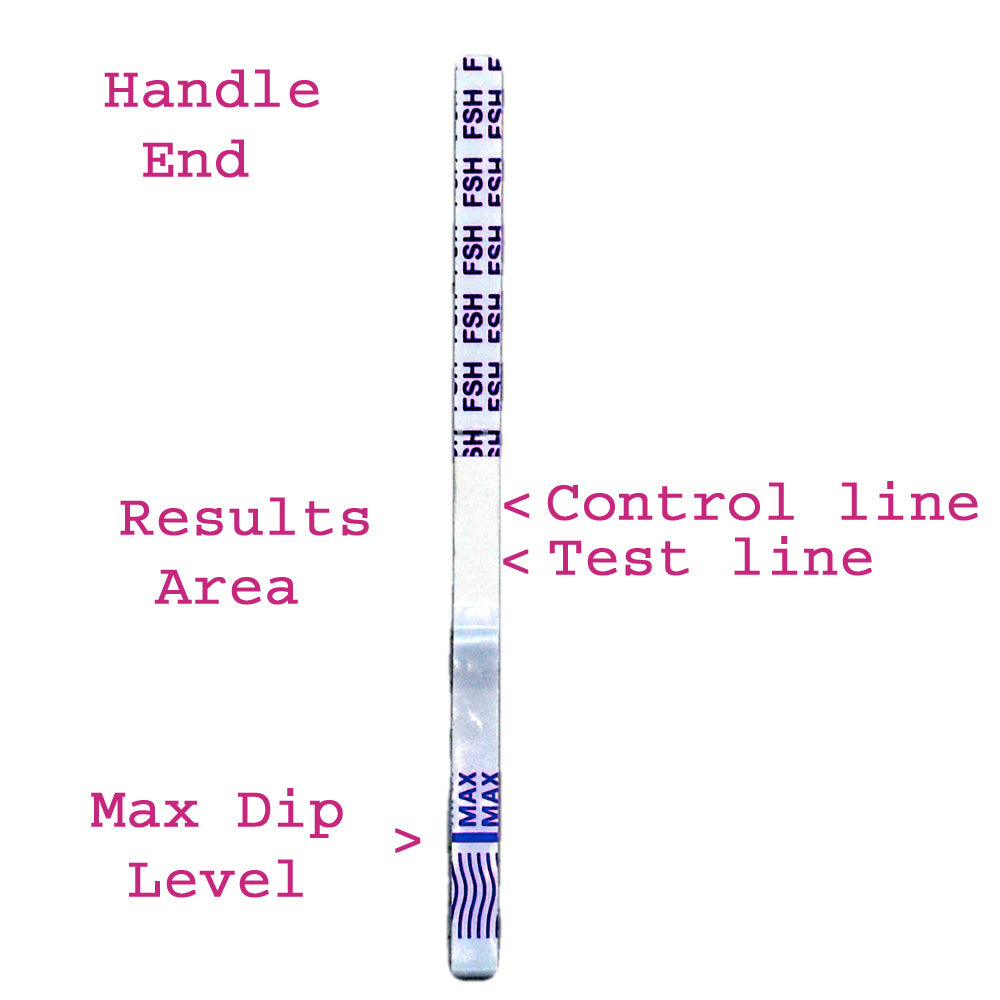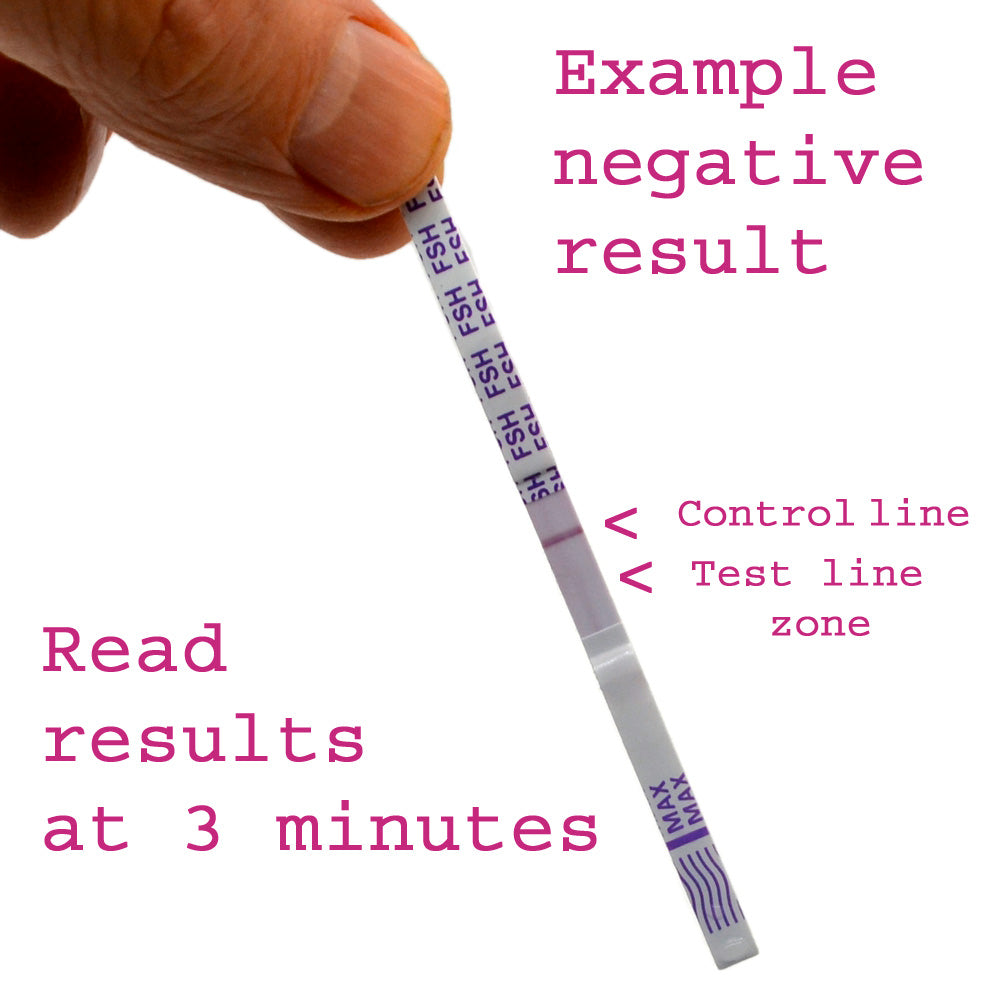Valuemed
ALLTEST Menopause And Perimenopause Test Kit
ALLTEST Menopause And Perimenopause Test Kit
Couldn't load pickup availability
Home menopause and peri-menopause urine test kit
The ALLTEST menopause test kit is a quick, accurate easy to use at home test to check for elevated levels of FSH in urine, which is a very good reliable indication of menopause or peri-menopause.
Simple, accurate, and easy to use urine test strip to detect persistently elevated levels of FSH associated with reduced fertility, perimenopause, early menopause and menopause.
Key features of the home menopause and perimenopause test kit:
- Urine test kit to detect menopause and perimenopause.
- Over 99% accurate.
- CE marked test kit.
- Simple female fertility test to detect persistently elevated levels of Follicle Stimulating Hormone in a urine sample( FSH for short) which is an indicator of menopause or perimenopause.
- Simple to use urine dipstick FSH test strips.
- Quick results in minutes.
- Each FSH urine test strip is individually wrapped in foil, for a long shelf life.
- Full instructions are included to perform the test for menopause and peri-menopause at home.
- The detection level of the urine test strips is 25mIU FSH.
How to use and interpret the results of the home menopause test
- A positive result is indicated by 2 or more consecutive positive urine FSH test results over a 7-day interval.
- FSH is normally elevated prior to ovulation but if this level stays persistently elevated this can be a sign of menopause or peri-menopause and reduced fertility
- Perform 1 test at any time of day and repeat 7 days later.
- The test strips measure FSH in the urine and are able to tell you whether the level is normal or elevated.
- There are several possible causes of a persistently elevated FSH, but the main one would be menopause or perimenopause.
- FSH levels can also be persistently elevated in PCOS (polycystic ovarian syndrome) and ovarian failure so it is a good screening test for this to.
- After menopause, FSH remains high for the remainder of life and therefore these tests will be positive in all post-menopausal women.
- If you are under 45 years old and obtain a persistently elevated FSH level as described above you should seek medical advice, especially if you are trying to conceive.
What is a menopause and peri-menopuase test kit and how do they work?
Home menopause test kits are designed to measure hormone levels, typically follicle-stimulating hormone (FSH) in a woman's urine. These FSH tests can provide an indication of whether a woman is approaching menopause or has already entered menopause. However, the accuracy and reliability of these at home menopause tests can vary.
Some factors to consider regarding the efficacy of these urine FSH test kits to detect peri-menopause and menopause include:
- Timing: Menopause test kits may be more accurate when used during specific stages of a woman's menstrual cycle and at particular times of day. Instructions provided with the test kit should be followed carefully for optimal results.
- Interpretation: Interpreting the results correctly is essential. A positive result may indicate elevated FSH levels, which can be indicative of menopause, or perimenopause if its persistently elevated over a series of tests conducted at different times during the month. These tests are a useful tool that empowers women to monitor their FSH hormone levels at home, and screen for perimenopause. You may need to consult with your doctor for confirmation and interpretation of the results if you wish to discuss hormone replacement treatment options or are trying to conceive.
- Variability: Hormone levels can fluctuate, so a single test may not always provide a definitive answer. Repeat testing over time may be necessary for a clearer picture. A persistently elevated FSH level in the urine can be an indication of perimenopause or menopause.
- Other health factors: Certain health conditions or medications may affect hormone levels and could potentially impact the accuracy of the menopause test kit results.
- Professional consultation: While menopause test kits can provide information, it's important to consult with your doctor or other GP or other healthcare provider for proper evaluation and guidance, especially if you're experiencing symptoms associated with menopause or considering treatment options such as HRT, or if you are actively trying to conceive. Some GP surgeries and private clinics now run specialist menopause and perimenopause clinics.
In summary, menopause test kits can offer insights into your hormone levels and menopausal status, but their accuracy and reliability can vary. It's essential to follow the instructions provided with the home menopause test kit carefully, and to interpret the results accurately. If the Menopause tests are positive it is advisable to consult with a doctor for guidance and further evaluation, and to discuss your options. This is particularly important if you are trying to conceive.
What is menopause?
Menopause is a natural biological process that marks the end of a woman's reproductive years. It typically occurs in the late 40s to early 50s, although the timing can vary widely among individuals, with some women experiencing it much earlier than this. Menopause is diagnosed when a woman has not had a menstrual period for 12 consecutive months.
During menopause, hormonal changes, particularly a decrease in oestrogen and progesterone production by the ovaries, can lead to various symptoms. Not all women will experience the same symptoms, and their severity can vary.
What is perimenopause?
Perimenopause is the transitional phase leading up to menopause, marking the period of time when a woman's body begins to undergo hormonal changes that eventually culminate in the cessation of menstrual periods and the onset of menopause. Perimenopause typically starts several years before menopause, although the exact duration can vary among individuals.
During perimenopause, a woman's ovaries gradually produce less oestrogen, leading to irregular menstrual cycles and various symptoms associated with hormonal fluctuations. Perimenopause can last anywhere from a few months to several years, with the average duration being about four years.
Some common symptoms of perimenopause and menopause include:
- Irregular periods: Changes in menstrual cycles, including shorter or longer cycles, heavier or lighter bleeding, or skipped periods, are common during perimenopause, the transitional phase leading up to menopause.
- Hot flushes (also known as hot flashes) and night sweats: Sudden feelings of warmth, often accompanied by flushing of the face and sweating, can occur, particularly during perimenopause and early menopause. Night sweats, which are hot flashes that occur during sleep, can also disrupt sleep patterns, and may be very frequent.
- Vaginal dryness and discomfort: Decreased oestrogen levels can lead to vaginal dryness, itching, and discomfort during sexual intercourse. This can also increase the risk of urinary tract infections. If this is a problem during intercourse using an intimate lubricant such as lubido during for foreplay and intercourse can help with this.
- Sleep disturbances: Changes in hormone levels and night sweats can disrupt sleep patterns, leading to insomnia or difficulty staying asleep.
- Mood changes: Hormonal fluctuations can contribute to mood swings, irritability, anxiety, and depression during menopause.
- Fatigue: Some women experience increased fatigue or a general lack of energy during menopause.
- Changes in libido: Decreased oestrogen levels can affect sexual desire and arousal in some women.
- Changes in skin and hair: Decreased oestrogen levels can lead to changes in skin elasticity, dryness, and thinning hair.
- Memory and concentration issues: Some women may experience cognitive changes, including memory lapses, difficulty concentrating, or "brain fog."
- Bone density loss: Decreased oestrogen levels can increase the risk of osteoporosis, a condition characterised by weak and brittle bones.
You may find our menopause and peri-menopause test FAQ section below helpful
Share
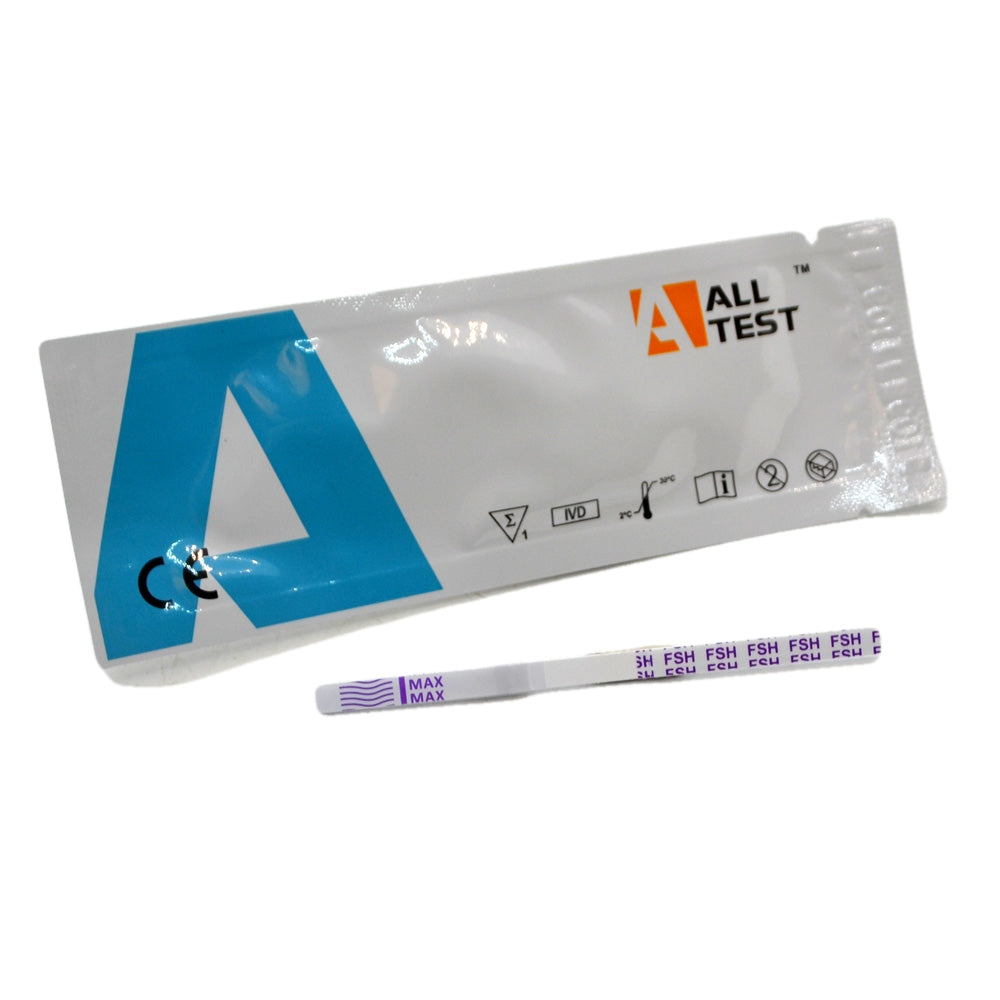
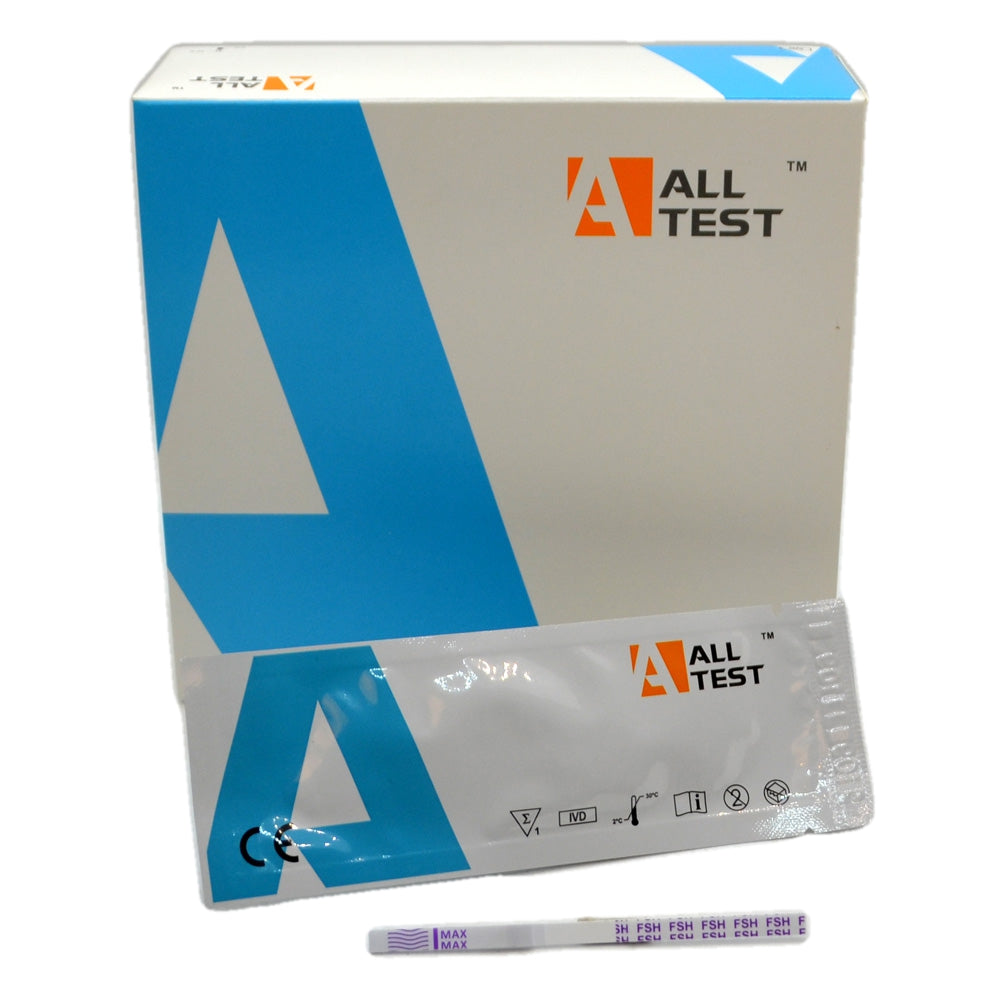
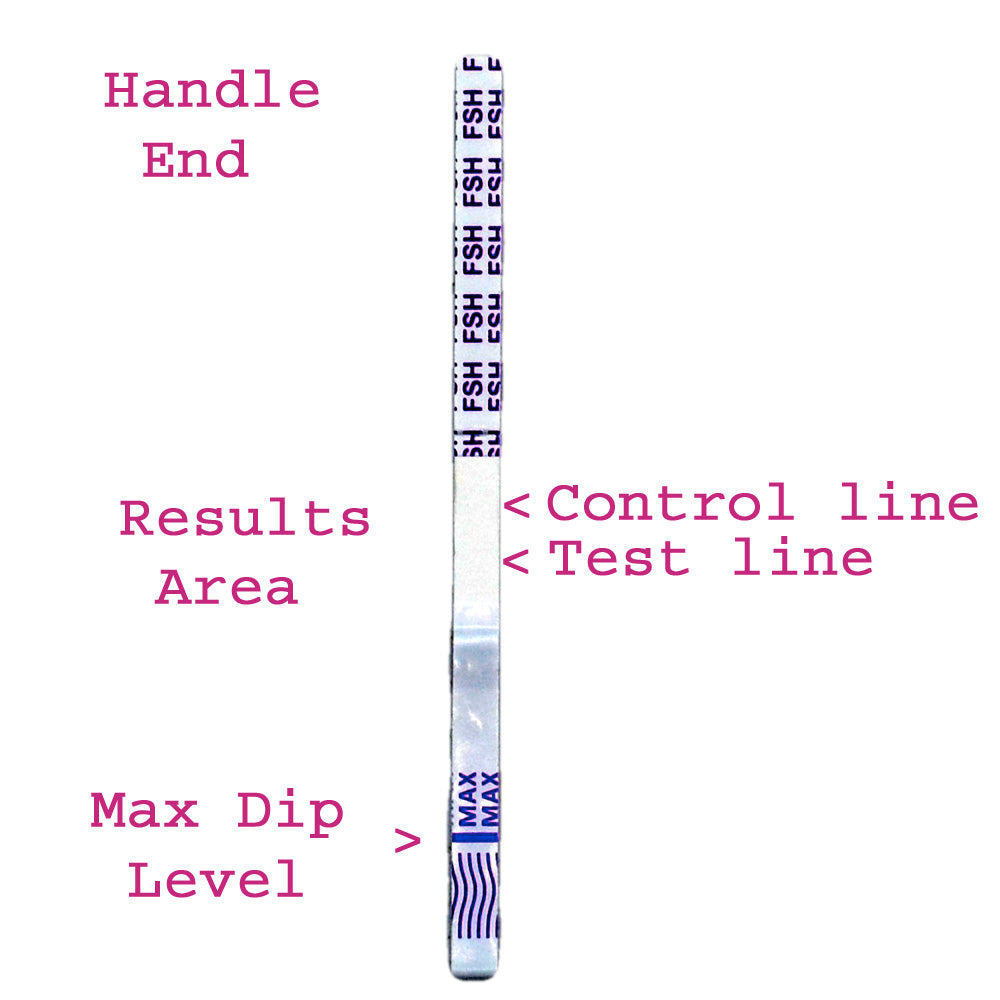

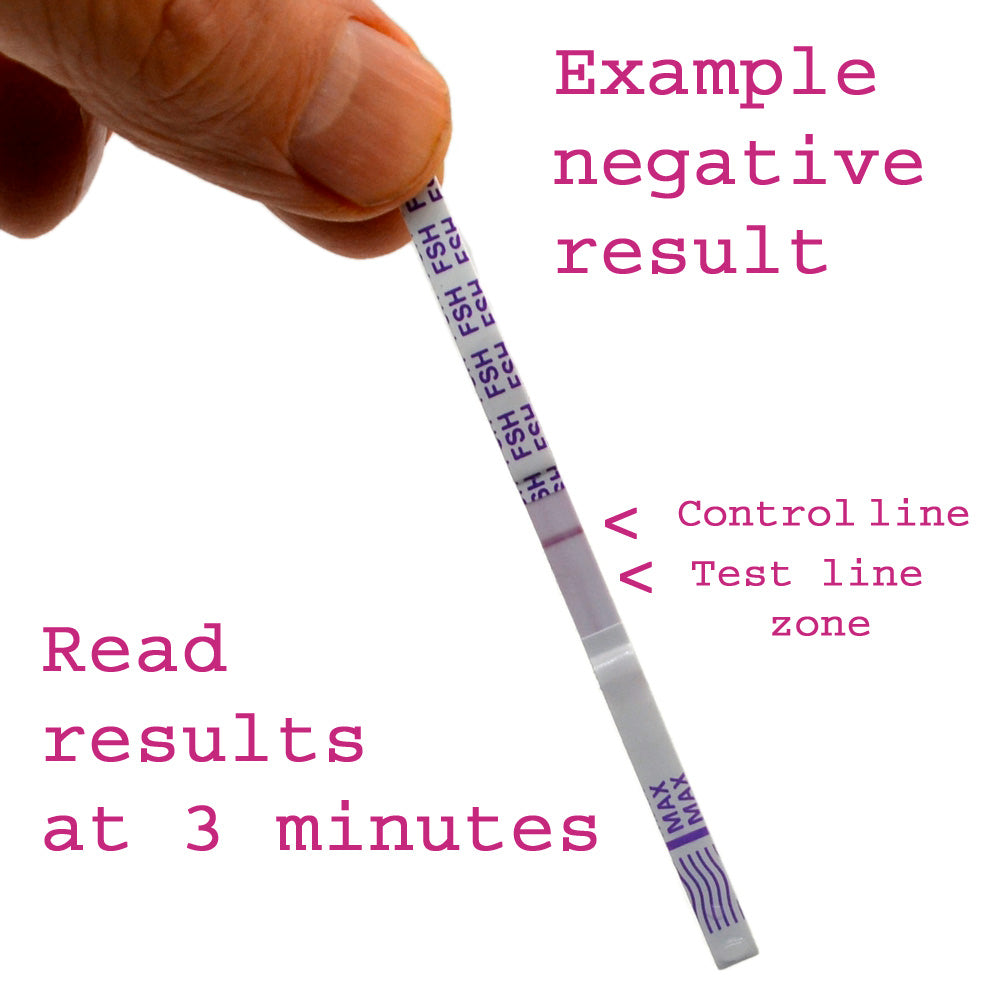

Collapsible content
How reliable is a FSH test for menopause and peri-menopause?
FSH testing can be a useful indicator for diagnosing both menopause and perimenopause, as elevated FSH levels typically signify reduced ovarian function and the body's transition into menopause.
However, its reliability varies, especially during perimenopause when hormone levels, including FSH, can fluctuate widely. A single FSH test might not be definitive during this transition phase. The test's accuracy improves when elevated FSH levels are consistent and correlated with common menopausal symptoms (e.g., hot flashes, irregular periods) and the patient's age, typically in their mid-40s to early 50s. To enhance diagnostic accuracy, we recommend multiple FSH tests over time and consider complementary evaluations of other hormones and clinical symptoms.
What time of day should the FSH test be done?
For accurate Follicle-Stimulating Hormone (FSH) testing for fertility it is generally recommended that it be done in the afternoon however when you are testing for menopause or peri-menopause, it is generally recommended to have the test done in the morning.
Hormone levels, including FSH, can vary throughout the day due to the body's natural circadian rhythms. Testing in the morning, typically between 7 and 10 a.m., can provide a more consistent and reliable measurement, as hormone levels tend to be more stable during this period.
As repeat FSH testing is usually required to diagnose menopause and peri-menopause, it’s important to do the FSH test at the same time of day each time. This consistency helps in comparing results and identifying trends more accurately.
When is the best time to test for perimenopause?
The best time to test for perimenopause is typically when women begin experiencing symptoms such as irregular periods, hot flashes, or mood swings, which often occur in their 40s but can start earlier.
For hormonal testing, it’s ideal to do so during the early follicular phase of the menstrual cycle (days 2-5) when levels are more stable. However, if menstrual cycles are highly irregular, testing can be done at any time. Given hormonal fluctuations in perimenopause, multiple tests over several months may be necessary to accurately assess changes.
Do you need to fast for an FSH test?
Unlike some other tests, FSH levels are not significantly affected by whether you have eaten. However, if you are having the FSH test done by a hospital or clinic, please make sure that you are follow any specific instructions given to you by them, about test timing or preparation, as this can help ensure the most accurate results. If you are testing at home you do not need to fast before the test.
Do you need to restrict fluid for an FSH urine test for menopause or peri-menopause in UK
For an FSH urine test in the UK, you generally do not need to restrict fluid intake drastically. It’s best to maintain moderate fluid intake and avoid excessive consumption immediately before the test to prevent dilution of the urine. Using the first-morning urine sample, as this is more concentrated, is often recommended for the most accurate results. Always adhere to the specific instructions provided with your test kit that you are using.
What does a positive FSH urine test mean?
Elevated FSH levels are a hallmark of menopause. During perimenopause, the phase leading up to menopause, FSH levels can fluctuate and periodically rise.
A positive FSH urine test indicates elevated levels of FSH, which is commonly associated with the decreased ovarian function seen in menopause and perimenopause. In younger women, it can signal issues like diminished ovarian reserve or premature ovarian insufficiency. Elevated FSH levels can also help explain menstrual irregularities and guide further reproductive health evaluations.
What does a negative FSH urine test mean?
A negative FSH urine test indicates normal or low levels of FSH, suggesting that the ovaries are functioning normally and the individual is not likely in perimenopause or menopause.
However while elevated FSH levels often suggest perimenopause or menopause, a negative FSH test does not definitively rule out peri-menopause. Hormonal fluctuations can still occur in perimenopause despite normal FSH levels. Additionally, FSH tests are ineffective for individuals using hormonal contraception, as these medications suppress FSH production and can mask your true hormone levels.
If menopausal symptoms persist despite repeated negative FSH test results, it is important to consult with your doctor for further investigation
Do I still need to see a doctor about my menopause symptoms?
Yes. While these test strips provide helpful guidance, they do not replace a professional medical diagnosis. Consult your GP if you have persistent symptoms, health concerns, wish to look at treatment options including HRTor need further confirmation.
Are these FSH test strips safe and easy to use?
Yes. They are non-invasive, safe, and easy to use either in the clinic or at home. Simply follow the instructions provided with your kit.
How often should I perform the home menopause test?
If your first test is unclear or negative but you still have symptoms, retest after a few weeks. Hormone levels can vary, so multiple tests may provide a more accurate picture.
Can the menopause test give false results?
Yes. FSH levels fluctuate, and certain factors such as medications, HRT, or hormonal contraceptives can affect results. A negative test does not always rule out menopause, especially during the early stages.
What does a positive result on an FSH menopause test mean?
A positive result (indicating raised FSH) may suggest you are entering perimenopause or menopause. Results should be interpreted alongside symptoms and, if needed, confirmed by your GP.
When should I take the menopause test?
Testing is most useful if you are experiencing symptoms such as irregular periods, hot flushes, night sweats, or mood changes, typically in your 40s or 50s. Morning urine is recommended for the most consistent results.
How do I use a home menopause FSH test strip?
- Collect a urine sample in a clean container.
- Dip the FSH test strip into the urine for the recommended time.
- Lay the strip flat and wait the instructed number of minutes.
- Read the result by comparing the test strip to the guide provided in the kit.
How accurate are FSH home test strips?
These test strips are generally very reliable for detecting raised FSH levels in urine, but hormone levels fluctuate throughout the month. For the most accurate results, it is recommended to test first thing in the morning as the urine is more concentrated and, if needed, repeat the test a few days later to confirm that it is still elevated. A persistently elevated FSH level is significant, and suggests perimenopause, menopause or other health conditions associated with persistently elevated FSH.
How do these FSH urine test strips work?
The strips detect elevated FSH in your urine. During menopause, the ovaries produce less oestrogen, which causes the body to increase FSH. By testing your urine, these strips provide a quick indication of hormonal changes.
What is a home menopause FSH urine test strip?
A home menopause FSH urine test strip is a simple at-home test that measures the level of follicle-stimulating hormone (FSH) in your urine. Raised FSH levels can indicate perimenopause or menopause.

